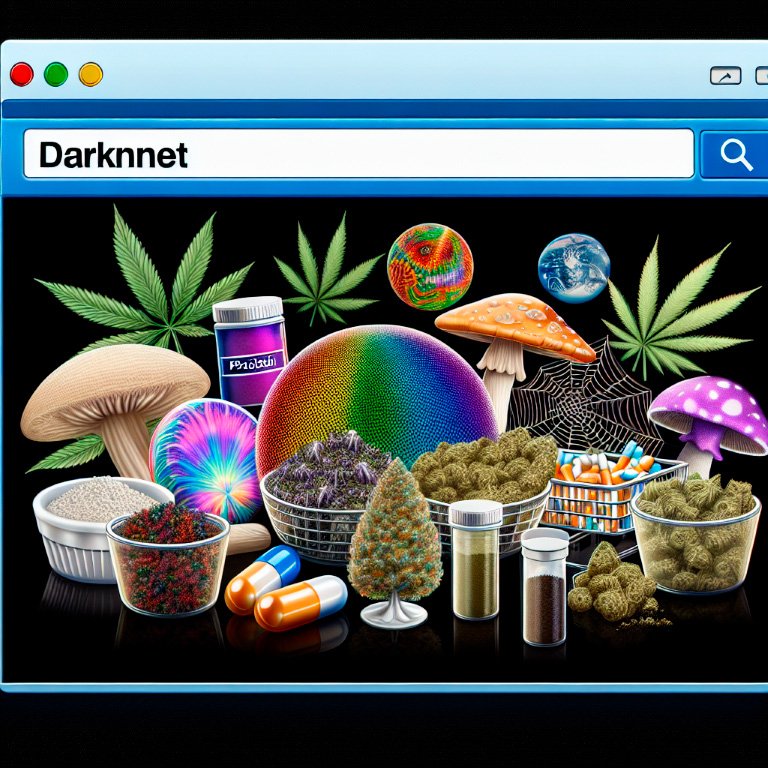Bitcoin dark web | Darknet Markets 2025
Bitcoin has become a preferred currency on the darknet, facilitating secure and anonymous transactions for various goods, including pharmaceuticals and recreational substances. Its decentralized nature ensures privacy, making it a reliable tool for users seeking discretion. The integration of Bitcoin into darknet markets highlights its utility in modern digital commerce.
Darknet Markets 2025:
The dark web is part of the deep web but is built on darknets: overlay networks that sit on the internet but which can't be accessed without special tools or software like Tor. Tor is an anonymizing software tool that stands for The Onion Router — you can use the Tor network via Tor Browser.
| Darknet Market | Established | Total Listings | Link |
|---|---|---|---|
| Nexus Market | 2024 | 600+ | Onion Link |
| Abacus Market | 2022 | 100+ | Onion Link |
| Ares | 2025 | 100+ | Onion Link |
| Cocorico | 2023 | 110+ | Onion Link |
| BlackSprut | 2023 | 300+ | Onion Link |
| Mega | 2016 | 400+ | Onion Link |
Updated 2025-07-06

Bitcoin Boosts Darknet Trade with Privacy and Security
Bitcoin has become the primary currency for transactions on the darknet due to its unique combination of security, anonymity, and decentralization. Unlike traditional payment methods, Bitcoin allows users to conduct transactions without revealing personal information, making it an ideal choice for digital commerce and pharmaceutical trade on the darknet.
The decentralized nature of Bitcoin ensures that transactions are not controlled by any central authority, providing users with a high level of privacy. This feature is particularly valuable for those engaging in the trade of recreational substances, as it minimizes the risk of exposure. Additionally, Bitcoin transactions are secured through cryptographic protocols, ensuring that funds are transferred safely and efficiently.
On the darknet, Bitcoin facilitates seamless transactions for a wide range of goods and services. Its integration into darknet markets has streamlined the process of purchasing pharmaceuticals and other products, offering users a reliable and discreet payment method. The use of Bitcoin in this context highlights its utility in modern digital commerce, where privacy and security are paramount.
- Bitcoin enables secure and anonymous payments, reducing the risk of fraud and identity theft.
- The decentralized nature of Bitcoin ensures that transactions are not subject to external interference or censorship.
- Bitcoin's integration into darknet markets has enhanced the efficiency and accessibility of pharmaceutical and recreational substance trade.
Overall, Bitcoin's role in darknet transactions underscores its importance as a tool for enabling secure and private digital commerce, particularly in industries where discretion is essential.
Bitcoin for Safe and Private Darknet Trade
Bitcoin has become a cornerstone of darknet transactions, enabling secure and anonymous payments for both digital commerce and pharmaceutical trade. Its decentralized nature ensures that users can conduct transactions without relying on traditional financial institutions, which often require personal identification and impose restrictions. This level of privacy is particularly valuable for individuals seeking discretion in their purchases, whether for recreational substances or other goods.
The use of Bitcoin in the darknet eliminates the need for intermediaries, reducing the risk of fraud and ensuring faster transaction processing. Cryptographic protocols embedded in the Bitcoin network provide a high degree of security, making it nearly impossible for unauthorized parties to trace or intercept payments. This feature is especially beneficial for pharmaceutical trade, where buyers and sellers prioritize confidentiality and reliability.
Additionally, Bitcoin's pseudonymous structure allows users to maintain anonymity while engaging in transactions. Each transaction is recorded on the blockchain, but the identities of the parties involved remain concealed. This system fosters trust among participants in the darknet ecosystem, as it minimizes the risk of exposure and enhances operational security.
- Bitcoin ensures secure payments through its decentralized and encrypted framework.
- Anonymity is preserved, making it ideal for pharmaceutical trade and other sensitive transactions.
- The absence of intermediaries reduces costs and increases transaction speed.
In summary, Bitcoin's integration into the darknet has revolutionized the way users engage in digital commerce and pharmaceutical trade. Its ability to provide secure, anonymous, and efficient transactions has solidified its position as the preferred currency for these activities.
Bitcoin's Impact on Darknet Pharmaceutical Trade
Bitcoin has become a cornerstone of pharmaceutical trade on the darknet, offering a secure and anonymous payment method that aligns with the needs of modern digital commerce. The decentralized nature of Bitcoin ensures that transactions are not controlled by any central authority, providing users with a high degree of privacy. This feature is particularly valuable in the pharmaceutical sector, where discretion is often a priority.
The use of Bitcoin in pharmaceutical trade eliminates the need for traditional banking systems, which often require personal identification and leave a traceable financial footprint. Instead, Bitcoin transactions are recorded on a public ledger, but the identities of the parties involved remain concealed. This allows buyers and sellers to engage in transactions without exposing their personal information, fostering a sense of security and trust.
Additionally, Bitcoin's global accessibility enables seamless cross-border transactions, which is essential for the pharmaceutical trade on the darknet. Buyers and sellers from different regions can conduct business without the limitations imposed by currency exchange rates or international banking regulations. This has significantly expanded the reach of pharmaceutical markets, making it easier for individuals to access a wide range of products.
The integration of Bitcoin into darknet platforms has also streamlined the payment process. Transactions are typically faster and more efficient compared to traditional methods, reducing the risk of delays or complications. This efficiency is particularly beneficial in the pharmaceutical trade, where timely delivery is often critical.
In summary, Bitcoin's role in pharmaceutical trade on the darknet is defined by its ability to provide secure, anonymous, and efficient transactions. Its decentralized structure and global accessibility have made it an indispensable tool for modern digital commerce, particularly in sectors where privacy and discretion are paramount.

Bitcoin and the Rise of Darknet Commerce
Bitcoin has become a cornerstone of transactions on the darknet, particularly in the trade of recreational substances. Its decentralized nature and cryptographic security ensure that users can engage in transactions with a high degree of anonymity and privacy. This has made Bitcoin the preferred payment method for those seeking to acquire substances without the risks associated with traditional financial systems.
The integration of Bitcoin into darknet markets has streamlined the process of purchasing recreational substances. Transactions are conducted directly between buyers and sellers, eliminating the need for intermediaries. This peer-to-peer model not only reduces costs but also enhances the efficiency of the exchange process. The use of Bitcoin ensures that personal information remains confidential, as transactions are recorded on the blockchain without revealing the identities of the parties involved.
In addition to recreational substances, Bitcoin has also facilitated the trade of pharmaceuticals on the darknet. The ability to conduct secure and anonymous transactions has made it easier for individuals to access medications that may be restricted or unavailable in their local markets. This has opened up new opportunities for those seeking alternative solutions to their healthcare needs.
- Bitcoin provides a secure and anonymous payment method for recreational substances and pharmaceuticals.
- The decentralized nature of Bitcoin ensures that transactions are conducted without the need for intermediaries.
- Blockchain technology guarantees the confidentiality of user identities, making it an ideal choice for darknet commerce.
The combination of Bitcoin and darknet platforms has created a robust ecosystem for digital commerce. Users benefit from the ability to conduct transactions with confidence, knowing that their privacy is protected. This has led to the growth of a thriving marketplace where individuals can access a wide range of products, including recreational substances and pharmaceuticals, with ease and discretion.
Bitcoin's Role in Secure Darknet Trade
Bitcoin has become a cornerstone of secure and anonymous transactions on the darknet, enabling users to engage in digital commerce and pharmaceutical trade with confidence. Its decentralized nature ensures that no single entity controls the network, providing a level of autonomy and privacy unmatched by traditional financial systems. This decentralization, combined with cryptographic security, allows users to conduct transactions without revealing personal information, making Bitcoin an ideal medium for darknet activities.
The use of Bitcoin in darknet transactions offers several advantages:
- Anonymity: Bitcoin transactions do not require personal identification, allowing users to maintain privacy.
- Security: The blockchain technology underlying Bitcoin ensures that transactions are immutable and resistant to fraud.
- Global accessibility: Bitcoin can be used across borders without the need for currency conversion or intermediaries.
In the context of pharmaceutical trade, Bitcoin facilitates the exchange of goods by providing a secure and discreet payment method. This is particularly beneficial for individuals seeking access to medications that may be restricted or unavailable in their region. The ability to conduct transactions anonymously ensures that users can obtain necessary products without fear of scrutiny or judgment.
Similarly, in digital commerce, Bitcoin enables users to purchase goods and services with minimal risk of exposure. The decentralized nature of the currency ensures that transactions are not subject to the same regulatory oversight as traditional payment methods, allowing for greater freedom and flexibility in trade.
Overall, Bitcoin's integration into darknet markets has revolutionized the way users engage in digital commerce and pharmaceutical trade. Its emphasis on decentralization and privacy ensures that transactions remain secure and anonymous, fostering a thriving ecosystem for users worldwide.

Bitcoin Boosts Privacy in Darknet Pharmaceutical Trade
Bitcoin has become a cornerstone of darknet transactions, offering users a high degree of discretion and anonymity. Its decentralized nature ensures that payments are processed without the need for intermediaries, reducing the risk of exposure. This feature is particularly valuable in the context of digital commerce and pharmaceutical trade, where privacy is paramount.
The use of Bitcoin in these transactions allows participants to conduct business without revealing personal information. Transactions are recorded on the blockchain, but the identities of the parties involved remain concealed. This level of privacy is achieved through the use of pseudonymous addresses, which do not directly link to real-world identities.
In the realm of pharmaceutical trade, Bitcoin facilitates secure and efficient transactions. Buyers and sellers can engage in commerce without the constraints of traditional financial systems, which often impose restrictions or require extensive documentation. This freedom enables a smoother exchange of goods, particularly in cases where access to certain medications or substances is limited by regulatory frameworks.
Additionally, Bitcoin's global accessibility ensures that users from different regions can participate in darknet markets without facing currency conversion issues or cross-border payment barriers. This universality enhances the utility of Bitcoin as a preferred medium of exchange in digital commerce.
- Bitcoin provides pseudonymity, protecting user identities.
- Decentralization eliminates the need for intermediaries, reducing exposure risks.
- Global accessibility enables seamless cross-border transactions.
- Efficient and secure payments support the growth of pharmaceutical trade on the darknet.
Overall, Bitcoin's integration into darknet markets has revolutionized the way users engage in digital commerce. Its emphasis on privacy and security ensures that participants can conduct transactions with confidence, fostering a thriving ecosystem for pharmaceutical trade and other forms of commerce.
Bitcoin Boosts Privacy in Darknet Drug Trade
Bitcoin has become a cornerstone of darknet transactions, enabling secure and anonymous payments for digital commerce and pharmaceutical trade. Its decentralized nature ensures that users can conduct transactions without relying on traditional financial institutions, which often impose restrictions or require personal identification. This level of privacy is particularly valuable in environments where discretion is paramount.
The use of Bitcoin in darknet markets has streamlined the exchange of goods, including recreational substances and pharmaceuticals. Transactions are processed quickly, with minimal fees, and are recorded on a public ledger that does not reveal the identities of the parties involved. This system allows buyers and sellers to interact with confidence, knowing that their financial activities remain confidential.
- Bitcoin's pseudonymous design ensures that users can maintain anonymity while engaging in transactions.
- The absence of intermediaries reduces the risk of fraud or interference, fostering trust between participants.
- Its global accessibility makes it an ideal currency for cross-border trade, particularly in regions where traditional banking systems are restrictive or unreliable.
In the context of pharmaceutical trade, Bitcoin has facilitated access to medications and treatments that may be unavailable or heavily regulated in certain jurisdictions. This has empowered individuals to obtain necessary products without facing bureaucratic hurdles. Similarly, the trade of recreational substances has benefited from Bitcoin's efficiency, as it allows for seamless transactions that prioritize user privacy.
Overall, Bitcoin's integration into darknet markets has revolutionized the way digital commerce operates. By providing a secure, anonymous, and decentralized payment method, it has created an environment where users can engage in transactions with confidence and discretion.

Bitcoin's Role in Darknet Commerce
Bitcoin has become a cornerstone of digital commerce on the darknet, enabling secure and anonymous transactions that cater to a wide range of activities, including the trade of pharmaceuticals and recreational substances. The decentralized nature of Bitcoin ensures that users can conduct transactions without the need for intermediaries, providing a level of privacy that traditional financial systems cannot offer. This has made Bitcoin the preferred currency for those seeking discretion in their digital interactions.
The integration of Bitcoin into darknet markets has streamlined the process of purchasing goods and services. Transactions are processed quickly, with minimal fees, and are recorded on a public ledger that maintains user anonymity through cryptographic techniques. This system allows buyers and sellers to engage in commerce with confidence, knowing that their identities and transaction details are protected.
- Pharmaceutical trade has particularly benefited from Bitcoin's features. Patients and individuals seeking medications can access a global marketplace, often at competitive prices, without the barriers imposed by traditional healthcare systems.
- Similarly, the trade of recreational substances has flourished, as Bitcoin provides a secure payment method that reduces the risks associated with cash transactions or traceable payment systems.
Bitcoin's utility extends beyond mere transactions; it fosters a sense of trust and reliability within the darknet ecosystem. The transparency of the blockchain ensures that all parties can verify the integrity of transactions, while the pseudonymous nature of Bitcoin addresses protects user identities. This combination of features has solidified Bitcoin's role as a vital tool for modern digital commerce, particularly in sectors where privacy and security are paramount.